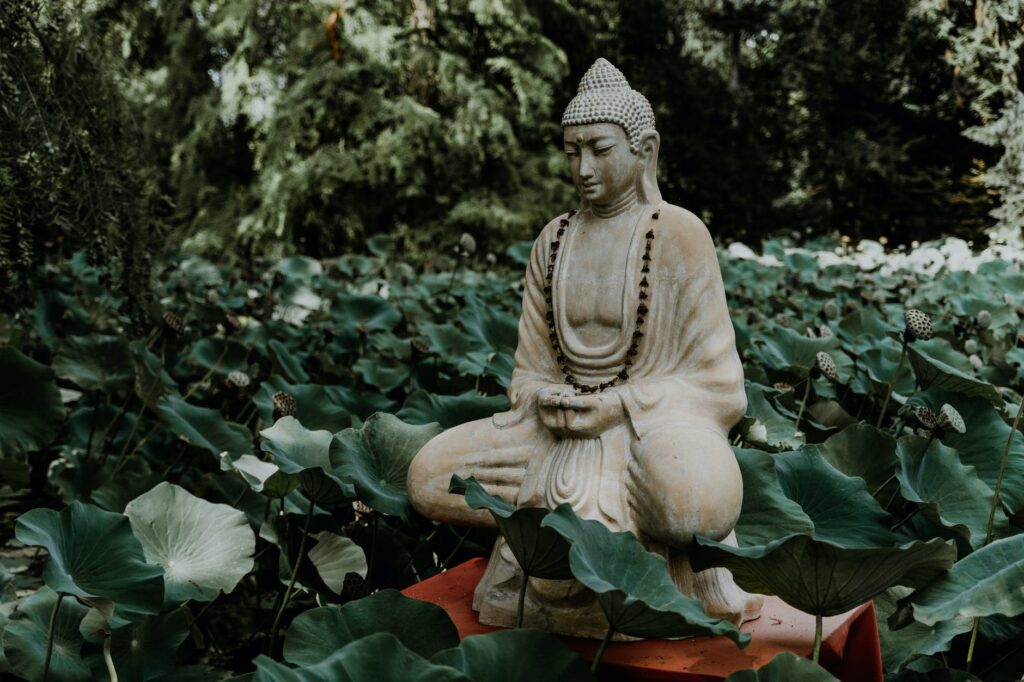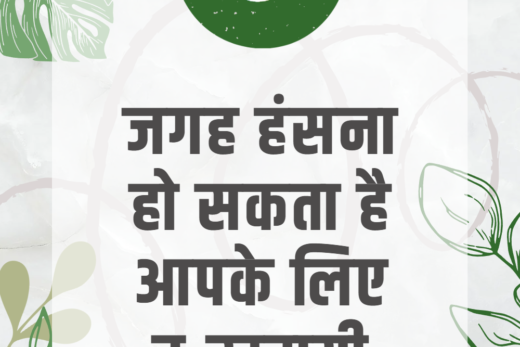1) “When you like a flower, you just pluck it. But when you love a flower, you water it daily.”
There is a sharp contrast between unconditional love and emotions that are based on our ego’s needs and desires.
By learning to understand the true meaning of what love is, we can appreciate the beauty and power it brings to our lives.
Master Buddhist Thich Nhat Hanh has a great way of describing how to love, through understanding and compassion:
“If you pour a handful of salt into a cup of water, the water becomes undrinkable. But if you pour the salt into a river, people can continue to draw the water to cook, wash, and drink. The river is immense, and it can receive, embrace, and transform. When our hearts are small, our understanding and compassion are limited, and we suffer. We can’t accept or tolerate others and their shortcomings, and we demand that they change. But when our hearts expand, these same things don’t make us suffer any more. We have a lot of understanding and compassion and can embrace others. We accept others as they are, and then they have a chance to transform.”
2) “Three things cannot be long hidden: the sun, the moon, and the truth.”
The truth cannot be hidden from those who seek it.
Neuroscience reveals how to stop overthinking
No matter what life throws at you or what manipulations you have to deal with from others, eventually the true nature of a situation will always be revealed.
This is particularly important in today’s sensationalized information age. We need to see reality for what it is, rather than be manipulated by people with agendas.
Take a step back, think for yourself and observe situations and circumstances before making an opinion about what is the truth.
3) “Peace comes from within. Do not seek it without.”
Modern society places such an emphasis on material possessions that we tend to measure our level of success by the amount of money we have or how others perceive us.
However, a peaceful life can only be achieved by acknowledging who you are within.
As soon as you start seeking happiness outside yourself, you give up your power to live the life you want.
4) “There is no path to happiness: happiness is the path.”
The old cliche that life is about the journey; not the destination holds a lot of truth. Don’t live your life in anticipation of the result.
Instead, embrace the joys and heartaches along the way to find out what it truly means to be living.
Remember, we only get a life once, so may as well make the most of it!
5) “An insincere and evil friend is more to be feared than a wild beast; a wild beast may wound your body, but an evil friend will wound your mind.”
To get the most out of life, you need to be surrounded by sincere people that are supportive of your authentic self.
When we associate with those who only cause us pain, we rob ourselves of an opportunity to be happy.
Everyone you choose to hang out with should add something positive to your life. If not, then what’s the point?
6) “In the sky, there is no distinction of east and west; people create distinctions out of their minds and then believe them to be true.”
❤️
Buddha emphasized within his teachings that we are all one.
Segregation and separation are a construct of mankind, but in the eyes of the universe, we are all equal and worthy of love and happiness.
7) “You will not be punished for your anger; you will be punished by your anger.”
Holding onto a grudge does nothing to the person that you are angry at. Instead, it simply consumes your mind and steals your joy.
All emotions have their place,but the best thing you can do to move forward is to let go of the negativity.
It’s also more fruitful to focus on kindness and being of service to others. Anger and resentment can cast a dark shadow around your mind to the point that it embezzles your life.
8) “We are shaped by our thoughts; we become what we think. When the mind is pure, joy follows like a shadow that never leaves.”
Our thoughts create our reality, and this idea is a common thread throughout many spiritual cultures. What you focus on in life is what you will continue to see. If you only acknowledge the darkness, it is hard to see the light.
There’s also no point holding grudges and letting your heart sink in anger. In order to be peaceful and happy we need to let go of such negativity and not dwell on it:
Share ❤️
9) “Believe nothing, no matter where you read it, or who said it, no matter if I have said it, unless it agrees with your reason and your common sense.”
Buddha’s message is simply to learn to think for yourself. We all have a lens that we perceive reality through, but only you can decide what is true for your life. Just because something is popular, does not make it right.

10) “You only lose what you cling to.”
Many of Buddha’s teachings are based upon the concept of attachment. There is no need to fear loss if we remove our emotional attachment from it. Unconditional love and joy come from fully accepting the experience, even if it is short-lived.
11) “No one saves us but ourselves. No one can and no one may. We ourselves must walk the path.”
Your life is yours, and yours alone. There is no way for anyone to experience the world from your unique perspective.
Instead of leaning on others to guide you through life, be brave and blaze your own path.
It’s also important to stick at it. According to, Buddha endurance through difficult times is crucial.
12) “The root of suffering is attachment.”
If you grew up in the west, most of us believed that desires and attachments would make us happy.
We believed that if we earned enough money, or purchased that new iPhone, that we would be truly happy.
But the joy doesn’t last long, and you’re back in a loop of desiring again. This is what causes us suffering.
To be happy, we need to look inside ourselves. We don’t need to grasp onto things around us in an attempt to find comfort and happiness from them.
True inner peace comes from letting go of those attachments.
The fundamental truths of life are impermanence and interbeing. Therefore, you’ll be better off in life if you’re able to exist in this world without grasping onto things with a sense of dependency.
13) “Meditate… do not delay, lest you later regret it.”
Meditation is a powerful technique in quieting your mind and reclaiming your focus.
Research has found that meditation almost certainly does sharpen your attention and increase your resilience to stress.
The question is, how do you meditate?
Begin your meditation by focusing on your breath, on the sensations of inhaling and exhaling.
There are many things you can focus on while meditating—a mantra, a flame, an image—but the breath is one of the most fundamental.
14) “Even death is not to be feared by one who has lived wisely.”
There are two certainties in life: death and taxes.
But while taxes we accept, we have trouble accepting death.
But there’s no point in fearing something that is inevitable. We need to find as many ways as possible so we can enjoy the time we have left.
Spend time doing things you love with people you love. Make your life rewarding and fulfilling. After all, we only get a life once, so we make as well make the most of it.
15) There is nothing more dreadful than the habit of doubt. Doubt separates people.
It is a poison that disintegrates friendships and breaks up pleasant relations. It is a thorn that irritates and hurts; it is a sword that kills.
There’s no point in doubting yourself. Self-doubts are often just made in the head to keep you in your comfort zone.
But the truth is this: The more we back ourselves and our decisions, the more we’ll get out of life.
In Conclusion
The lessons of Gautama Buddha can be applied to nearly every facet of our lives.
No matter where you came from or what you have experienced, we all have room to grow and evolve as people.
When we remain conscious of our thoughts and embrace our winding journey, we open the doors to bigger and brighter experiences.



